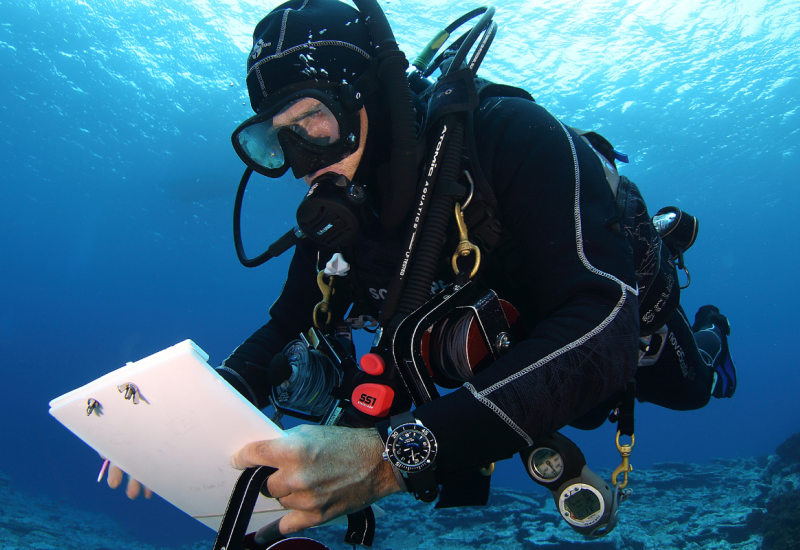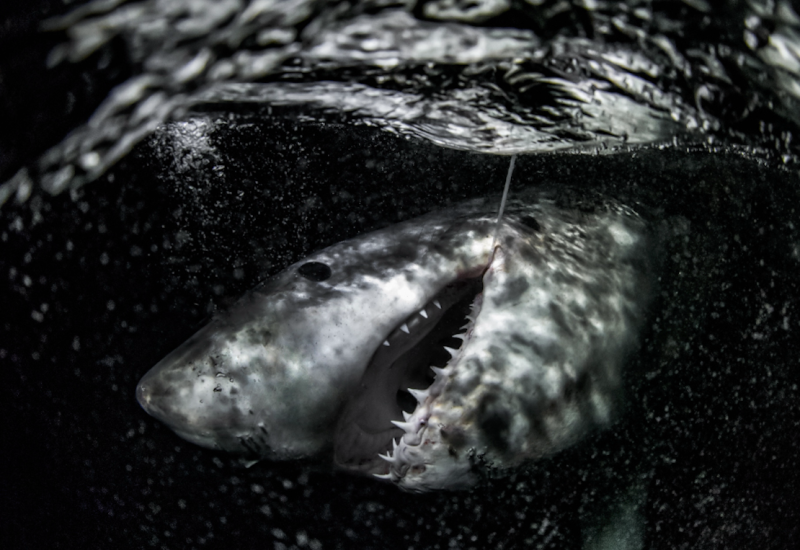The Jewish Ocean Conservation Group Every Diver Should Know About
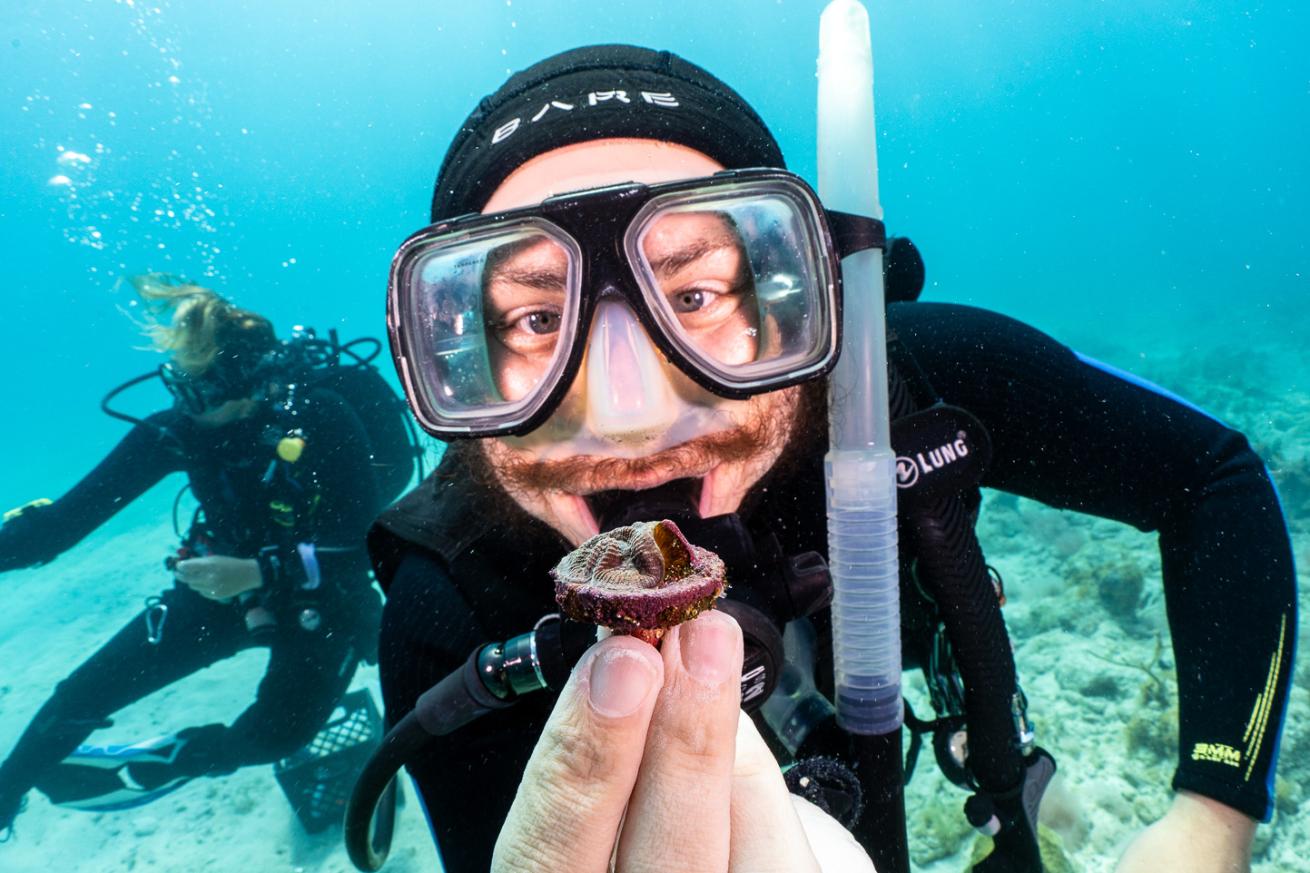
Courtesy Erica AllenRepair the Sea Campus Program Director Josh Keller during an I.CARE coral restoration dive.
Our ocean faces many threats, including climate change, ocean acidification, pollution, habitat loss and overfishing. For scuba divers, saving the ocean is something we do so we can continue to enjoy our amazing visits. For coastal communities, saving the ocean is a matter of survival. For one conservation organization, it’s a matter of faith. Tikkun HaYam, or “Repair the Sea,” is grounded in Jewish theology.
“The name comes from the Jewish tenant of Tikkun Olam, which means to repair the world,” Rabbi Ed Rosenthal, the CEO of Repair the Sea, tells me. “When God created the world, it was perfect, and then humans got thrown into the mix and messed it all up. As partners with God in all Creation, we have an obligation to repair that which we’ve messed up. Besides, if the ocean dies, we all die.”
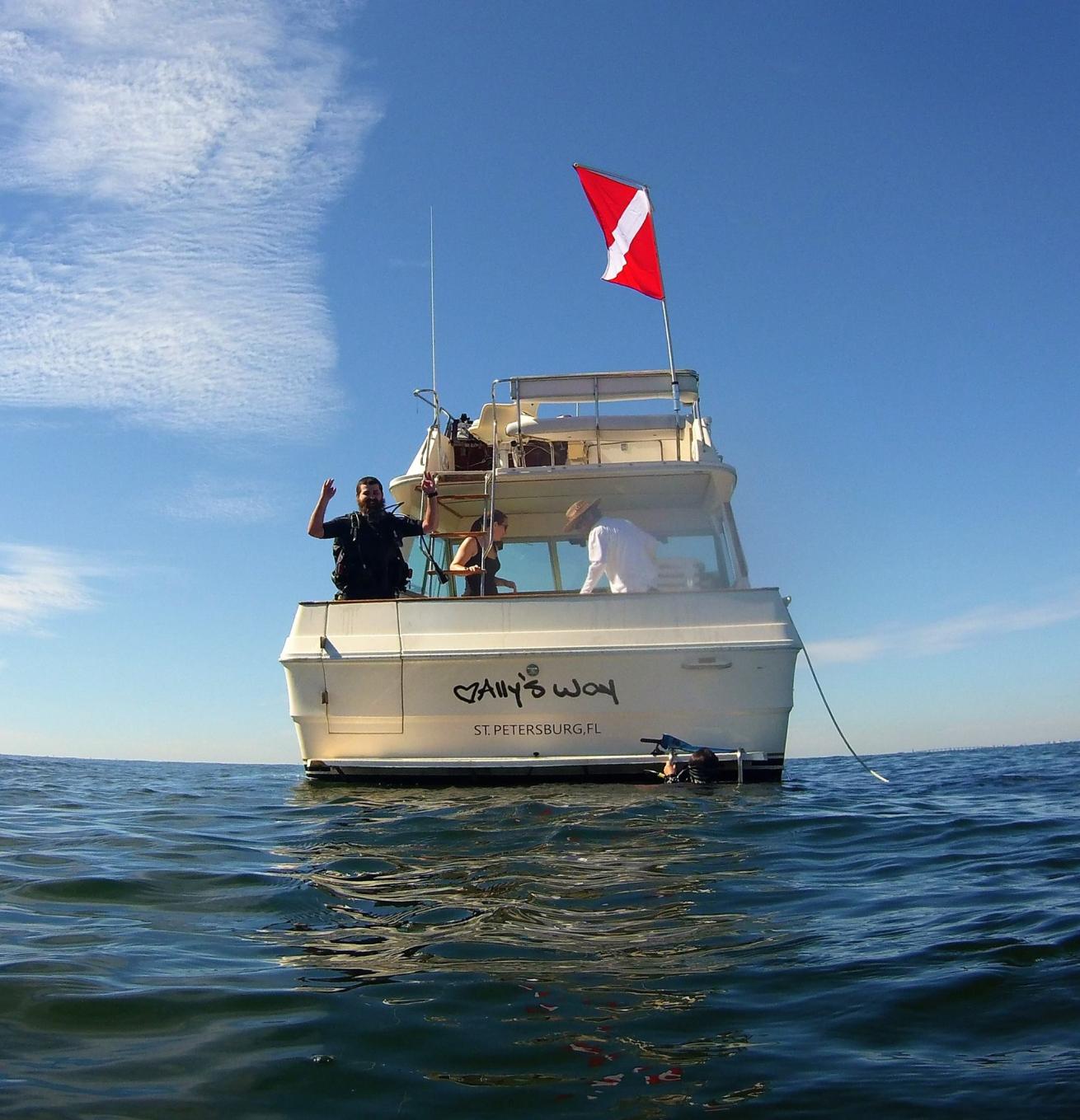
Repair the Sea participates in PADI Aware Dive Against Debris programs in Tampa Bay aboard their electric and solar-powered boat.
So what does a Jewish ocean conservation organization do? Aside from their local PADI Aware Dive Against Debris programs in Tampa Bay aboard their electric and solar-powered boat, and coral restoration in the Florida Keys, Repair the Sea’s biggest program is the Reverse Tashlich. “Traditionally, Tashlich is a ceremony that takes place on Rosh Hashanah, the Jewish New Year, when we go to a body of water and symbolically cast our sins into the water to begin the New Year with a clean heart,” Rabbi Rosenthal continues.
“One year, a student said to me, ‘Rabbi, there’s already more than enough human sin in the water, why don’t we take some out instead?’ So we started a program to clean the beach and the mangroves on campus at Eckerd College in St. Petersburg. The first year we had 5 students, and now we have over 4,000 people in 30 countries go to waterways near where they live and remove debris, in the context of the Jewish High Holidays.”
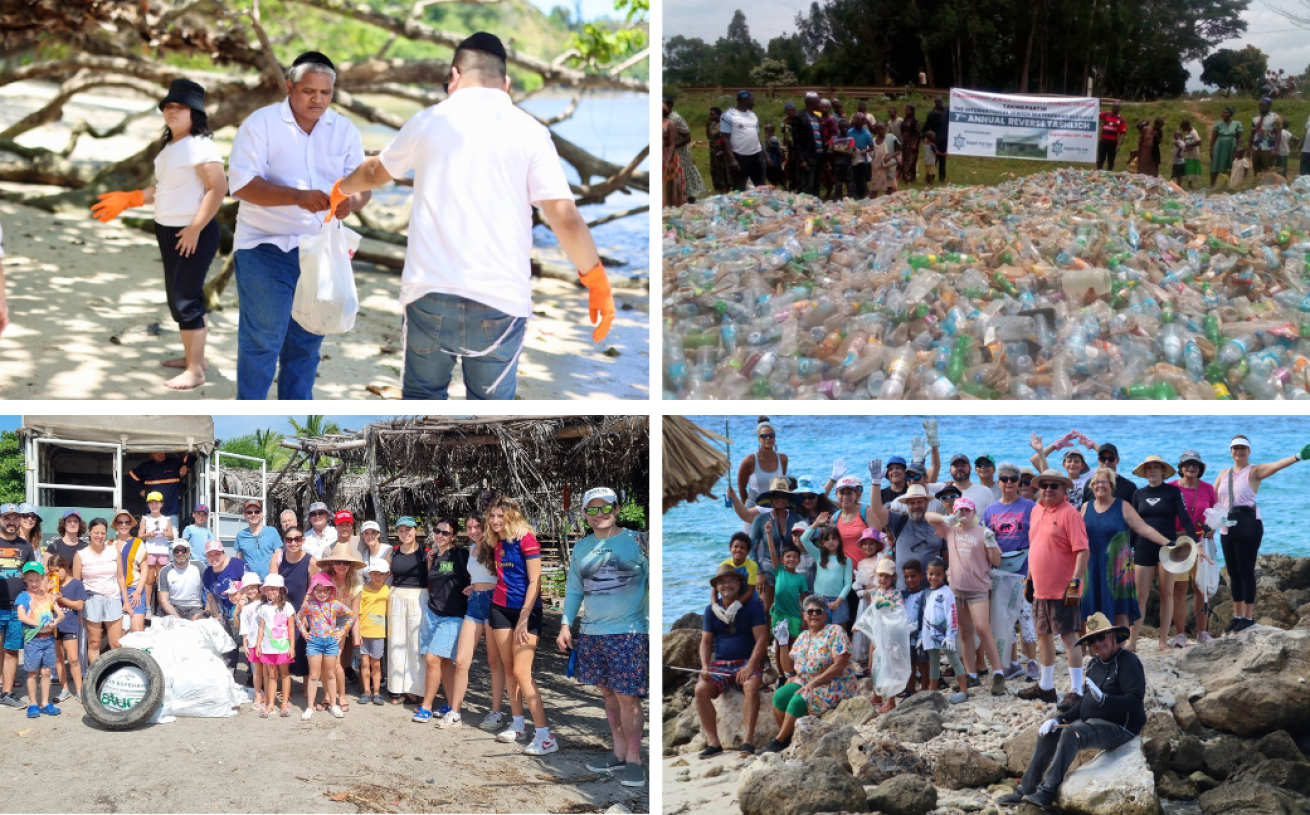
Courtesy Repair the SeaCollage of Reverse Tashlich communities of (clockwise from top left) Indonesia, Uganda, El Salvador and Curacao.
Another popular program they run offers a twist on a traditional Jewish ceremony of planting trees, associated with the Jewish holiday Tu Bishvat. Often this is done in one’s own community, but a common practice among many Jews is a donation in support of planting trees in Israel. “Instead of this, we plant corals in Israel!” Rabbi Rosenthal tells me. “A pioneer of coral restoration is Dr. Baruch Rinkevich at the Israel Oceanographic and Limnological Research Institute, and we raise money to support coral restoration there. We also raise money to support planting mangroves along coastlines.”

Courtesy Repair the SeaReverse Tashlich cleanup with the Avraham Ben Avraham Foundation in Nigeria.
Finally, Repair the Sea works with other faith-based community organizations to minimize their impact on the environment. “Every faith-based organization serves food in one capacity or another,” Rabbi Rosenthal reports. “And more often than not, they use single-use plastic, because it’s cheaper. Our Blue Green Initiative worked with a supplier of compostable products at the lowest possible price. The supplier agreed to give a 10% below wholesale discount to any faith-based organization that wants to stop using plastic that orders through the Repair the Sea website. So far, we’ve removed more than half a million pieces of single-use plastic.”
Related Reading: Divers Remove 14,000 Pounds of Trash in the Florida Keys
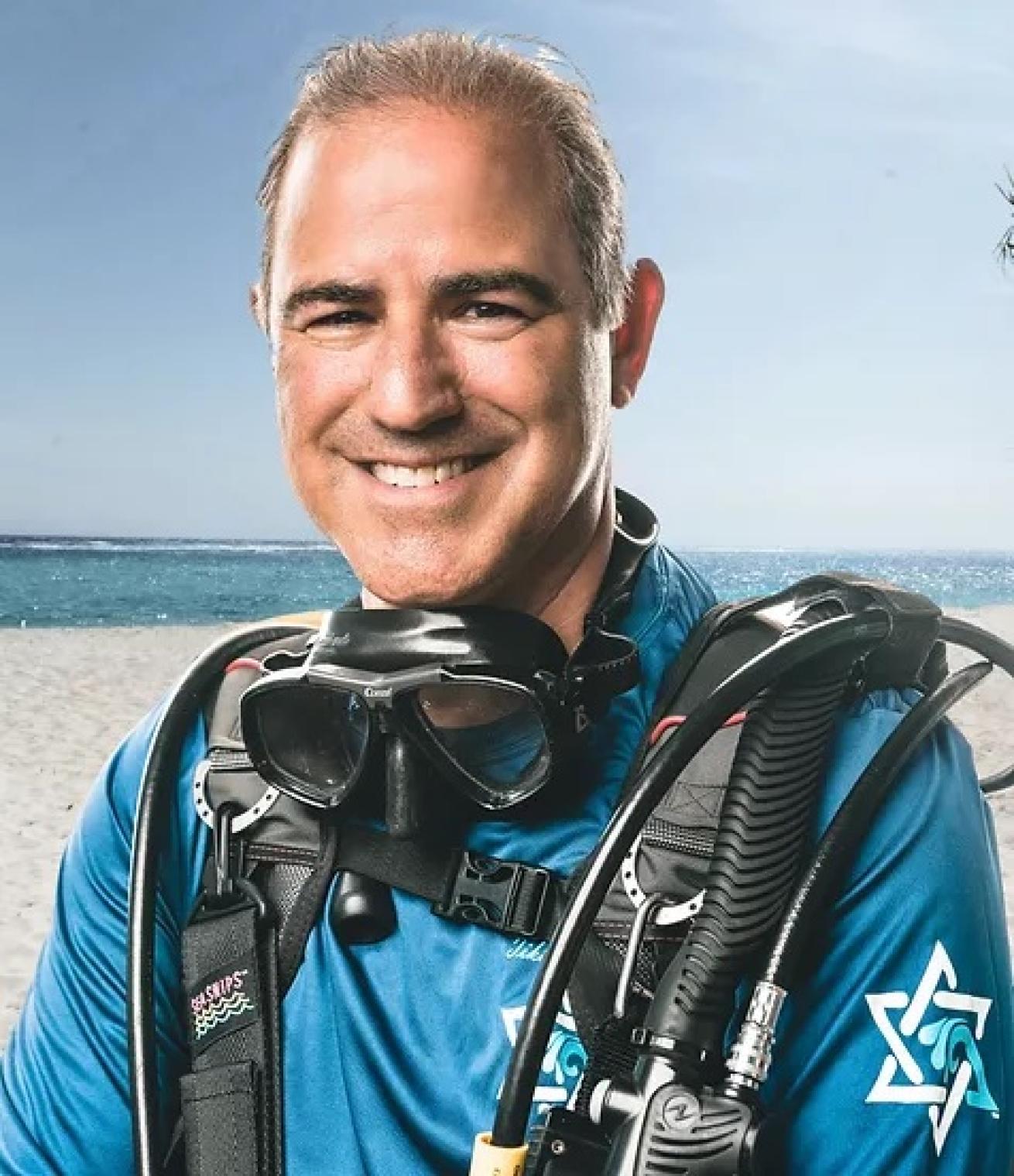
Courtesy Mike DunnFounder of Repair the Sea Rabbi Ed Rosenthal.
Scuba divers may be surprised to learn that a faith-based conservation organization even exists. “I personally believe that science and spirituality go hand in hand, science seeks to understand how the world works and our tradition seeks to understand why,” Rabbi Rosenthal says.
“While our work is done based on Jewish traditions and teaching, we do [so] in the context of science. Because there are millions of marine environmentalists out there, but there are billions of people of faith. And if we can show them that protecting, conserving, and restoring the aquatic environment is part of their faith tradition, that we’re all partners with God in protecting nature, we can motivate them to make a difference.”
Sign up for a Reverse Tashlich near you here.

